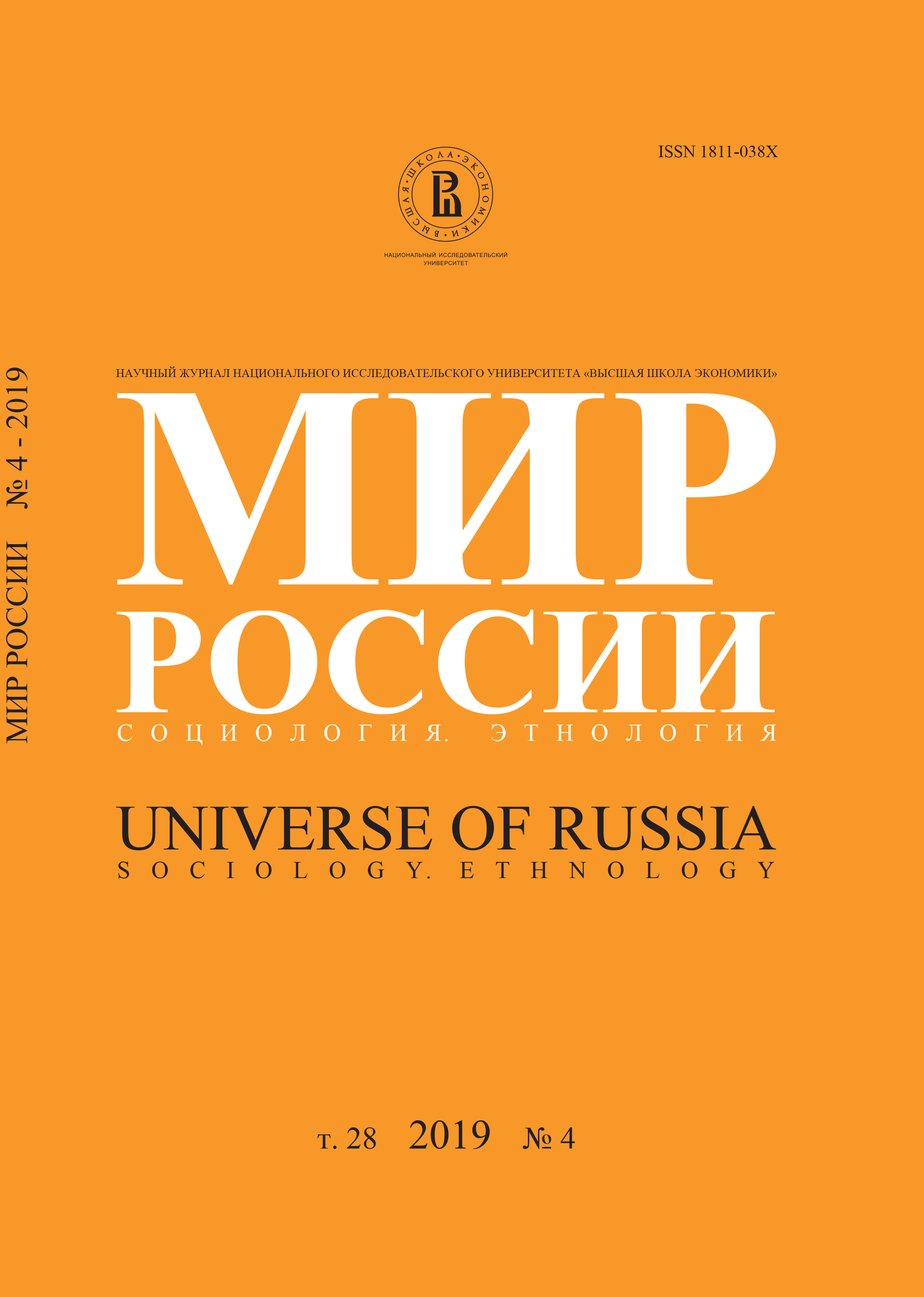The Impact of Socio-economic Status on Attitudes towards Migrants in the North-East of Russia
Abstract
Citation: Vasil’eva O. (2019) The Impact of Socio-economic Status on Attitudes towards Migrants in the North-East of Russia. Mir Rossii, vol. 28, no 4, pp. 152–171 (in Russian).
DOI: 10.17323/1811-038X-2019-28-4-152-171
Modern Russia faces several demographic challenges, among them population decline in the eastern regions of the country. Immigration is considered a solution to this problem. This raises the issue of the integration of migrants. This article looks at the socio-economic context of anti-immigrant attitudes, specifically how socio-economic status affects attitudes towards migrants. The study is based on a survey conducted in three locations – Yakutsk, Nizhny Bestyakh and Neryungri in the Republic of Sakha – in 2016 and 2017. The sample is a quota sample of 654 respondents representing the population of the three locations by gender and age. While the findings generally point to favorable attitudes towards migrants in the Republic of Sakha, the study reveals a remarkable connection between self-assessed financial situation, education and age, on one hand, and attitudes towards migrants and perceptions of inter-ethnic relations, on the other. In addition, the current discourse, which emphasizes the ethnic coloring of migration and which also appears to be a significant factor in the formation of inter-ethnic tensions, seems to particularly affect the more socio-economically disadvantaged. I argue that this has potentially serious ramifications for the long-term assessment of the situation with inter-ethnic relations in the region, especially in the context of the Russian Concept of Demographic Policy.






